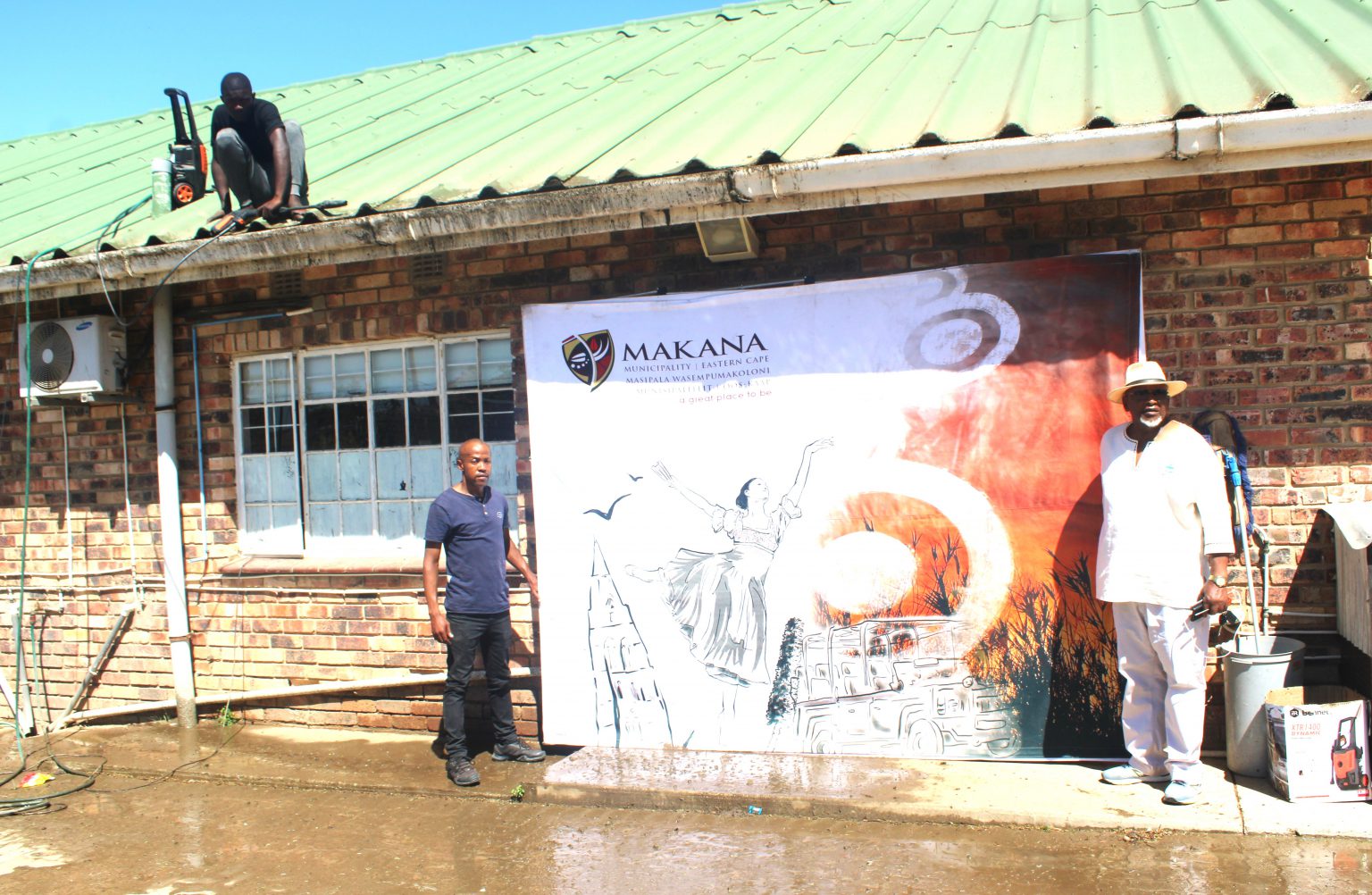By Luvuyo Mjekula and Rikie Lai
Following the discovery of E. coli in water samples from three communal areas in Makhanda, the Makana Municipality recently went on a programme to mitigate the potential danger.
A team from the municipality cleaned and disinfected the affected areas while sharing information with the local communities.
Joza Clinic, the military base and the municipality’s own environmental health office were the three places whose water samples were found to contain high levels of E. coli.
E. coli is a type of bacteria that usually lives in the intestines of humans. It is also found in the gut of some animals. Most types of E. coli are harmless and even help keep one’s digestive tract healthy. However, some strains can cause diarrhoea if one eats contaminated food or drinks polluted water, according to webmd.com.
Late last month, the Makana Municipality issued a “boil water alert”, asking local residents to “purify water due to the presence of E. coli that was found in water samples taken regularly to ensure that the water is fit for human consumption and complies with SANS 241”.
In recent days, a team from the municipality and other offices – led by quality assurance technical officer Siviwe Nase, ward 2 councillor Ramie Xonxa and communications officer Anele Mjekula, went on an awareness drive at the Joza Clinic, where they spoke to clinic staff and patients, giving them advice and guidelines on preventive measures.
They were accompanied by others from Makana Health District and the Community Work Programme (CWP).
A pressure washer was used to remove dirt and grime from the clinic’s gutters and water tanks. Nase said new components for the tanks would be procured.
Nase said that because of the high volume of people referred to the clinic, it was important for the municipality to intervene urgently, hence the cleaning programme.
He said the objective was to ensure that water in the clinic’s system, whether in its tanks or municipal taps, was fit for human consumption.
“Sometimes you find that there is no water [in the clinic]because Makhanda is a water-scarce area, and the clinic has to then rely on water from its tanks, which at times go a long time without being disinfected.”
“We want to leave [the clinic’s]water system clean and fit for human consumption.”
Asked if other areas within the municipality should be concerned about E. coli, Nase said: “There is nothing wrong with going the extra mile to make sure you are safe.”
Nase said the team also visited the military base to conduct a similar cleaning and awareness programme. They set up an appointment to return at a later date.
Xonxa said that as the councillor of Ward 2, where Joza Clinic is situated, the municipality needed to inform the local residents about E. coli and its risks and clean the facility. He thanked the local residents for welcoming the programme. “It was also important that we give them the information in their own language.”
The team also handed out copies of the municipality’s safety notices.
The municipality stated that it would issue updates on the E. coli situation.
In the meantime, community members were advised to put in place certain precautionary measures, such as boiling and putting bleach in the water.


